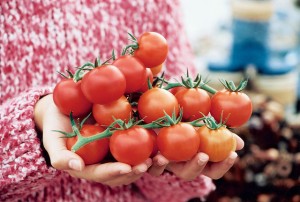The Australian Manufacturing Workers’ Union (AMWU) has expressed its disappointment over the Productivity Commission’s decision to deny tariffs against imported processed tomato and fruit products. This is despite the fact that the industry is suffering from competing with cheap exports and fruit growers are already burning trees in the Goulburn Valley.

According to a news release AMWU National Secretary Paul Bastian said the finding of “serious injury” should have already given the Productivity Commission sufficient ground to issue emergency tariff measures to protect the food processing industry in Australia.
“The Productivity Commission accepted that there’s a serious problem and the local industry is being hurt by cheap imports. That makes it hard to understand why they have not taken the logical step of introducing protections,” Mr. Bastian said.
“This means it is now even more critical that the Federal and Victorian Governments to act to secure jobs in food processing and support the Goulburn Valley.”
Bastian has pointed out the fact that since 2008 30% of the casual jobs and 19% of permanent jobs at SPC Ardmona have already been cut.
“We do not want to see the company forced to shed more jobs due to a lack of government support and unfair competition from imports,” he said. “Growers are ripping out trees but the PC simply sits on its hands and ignores the damage that is being done to the entire Goulburn Valley.”
Last week the Commission released its ruling that emergency safeguards against cheap imported food will not be required because they are unlikely to help fruit growers and SPC Ardmona in the short term.
The Commission reasoned that SPCA is owned by Coca-Cola Amatil which is a company that has large profits and as such it has the capacity to wait until the final report is handed down at the end of the year.
According to the report from ABC the report concluded that “the injury to growers is already locked in for this year and unlikely to be reversed by provisional safeguard measures, because SPC Ardmona has negotiated contracts for the next season.”
It has also determined that there is a lack of evidence to support the case for tariffs to safeguard most varieties of processed fruits and tomatoes.
Mr. Bastian has warned that unless the Australian government supports the industry through a range of measures including the implementation of tariffs, Australia’s food bowl would be empty.
“Australia has a tremendous opportunity in this area. A smart country would protect the future of its food manufacturing by securing the workers and the companies who do this important work,” he said.
“There’s simply too many workers, too many benefits, and too much at stake for governments and the Productivity Commission to not do what they can to support food processing in Australia.”




















